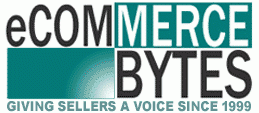
Facebook updated its self-serve advertising terms to give itself greater leeway in running tests on all aspects of the ads run on its network. The new terms take effect in January and spell out Facebook’s rights to run tests to assess formatting, relevance, pricing, reporting, targeting, and delivery of ads.
A reader made EcommerceBytes aware of the new terms in a post on Twitter. The user noticed the terms gave Facebook (Meta) the right to obtain personal and business credit reports on advertisers who place orders on the self-serve ad platform. (“By placing an Order, you authorize us to obtain your personal and/or business credit report from a credit bureau, either when you place an Order or at any time thereafter.”)
While we determined that provision is currently in place and will remain in place when Facebook changes the terms early next year, it was clearly concerning to the seller.
Comparing the current and new terms showed Facebook will be making a change to its provision addressing the tests it runs on ads.
Current Facebook Self-Serve Ad Terms (took effect on June 28, 2021):
“From time to time, we need to test improvements to our audiences and delivery systems, which could impact your advertising. Our testing is designed to improve the effectiveness of your advertising performance. We reserve the right to test when we believe it will be beneficial for advertiser performance.“
New Facebook Self-Serve Ad Terms (Takes effect on January 3, 2023):
“You understand that, from time to time, we run tests on our Self-serve Ad Interfaces and related systems, which may affect your use and experience thereof, including campaign performance. You acknowledge and agree that we may test as notified in these Terms, including to assess formatting, relevance, pricing, reporting, targeting and delivery.“
Advertising revenue has become a growth engine for large platforms as brands and retailers vie for attention from shoppers and consumers of social media. Sites continue to test new ad formats and models to grow their advertising businesses – eBay even launched a cost-per-click (CPC) version of its Promoted Listing ads for sellers seeking greater visibility on its marketplace.
Sellers who advertise on platforms like Facebook should monitor changes to try and assess how testing may be impacting their ad performance.




